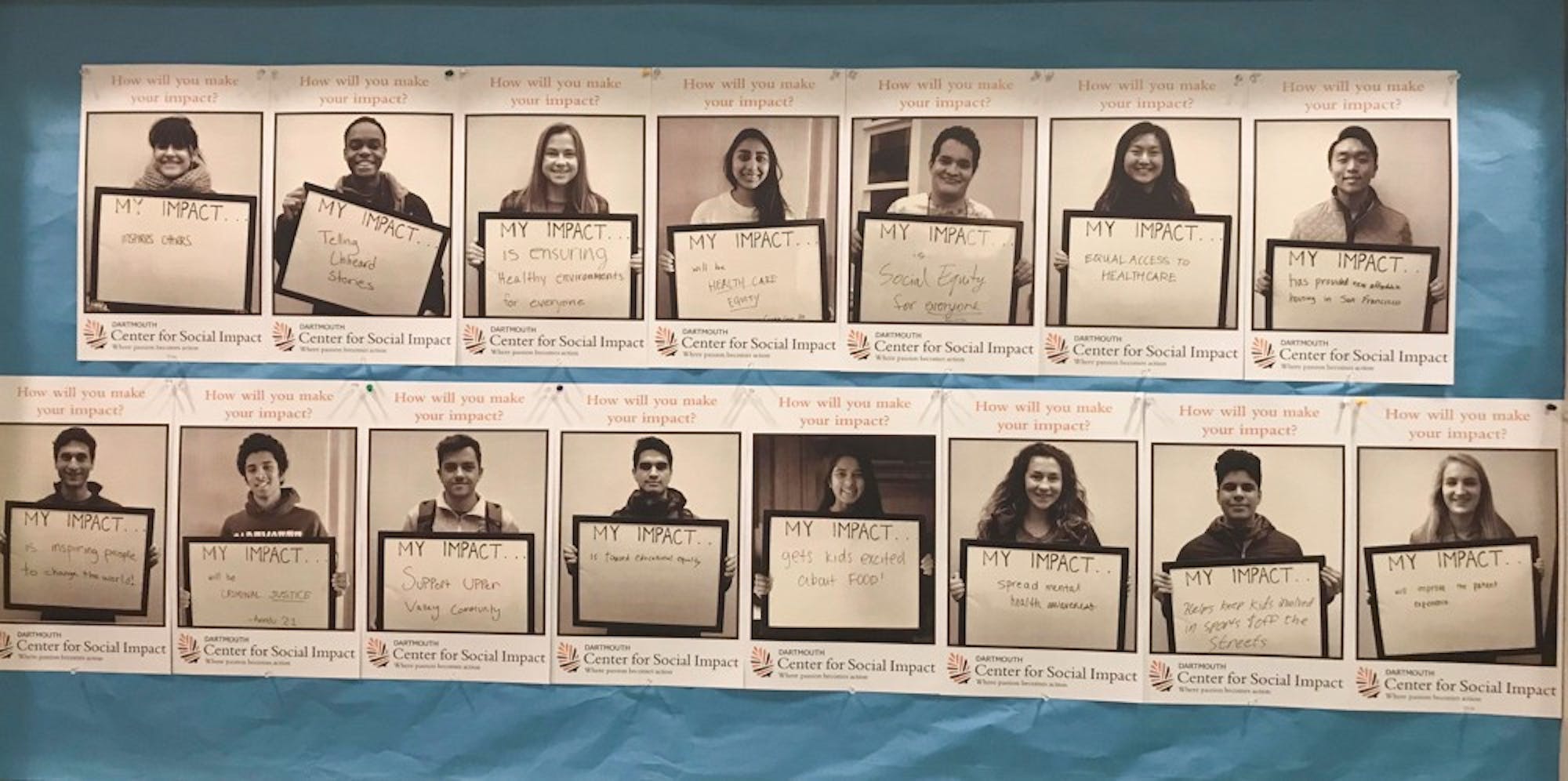The Dartmouth Center for Service changed its name this month to the Dartmouth Center for Social Impact to reflect its broader opportunities available and show that there are ways to effect social change outside of community service, according to the center’s interim director Tracy Dustin-Eichler.
The new name was formally approved by the Board of Trustees in November, said Dustin-Eichler. Senior associate dean of student affairs Liz Agosto ’01, who oversees the center as part of her work portfolio in student affairs, said that the center staff have been working on branding and website design for the last year. Since the name approval, the center has debuted a new website and updated its email to reflect its new title.
Since 2014, when the Tucker Foundation split into two branches to create both the Dartmouth Center for Service and the William Jewett Tucker Center, staff at the center have been working on a strategic plan examining the core of the center’s work, Agosto said.
“It became clear to us early on … that the work that we were doing and the scope of ways that students could learn and engage with the center were broader than just service,” Dustin-Eichler said.
“The Dartmouth Center for Service” did not accurately represent the opportunities provided for students and the term “social impact” will help students think about their potential impact on the world, she added.
The new name change will allow the center to develop programming, including an expansion of Social Impact Practicums, projects that partner students in academic courses with local organizations to solve community problems and engage in experiential learning.
Student director of the student-initiated programs Aparna Kachalia ’10 said that Social Impact Practicums, which currently involve 10 courses each term, is a way to bring real-world problem-solving into the classroom using the content and skills that students acquire through those courses.
“It’s taking things that they’ve wanted to do, maybe have not had the resources or the capacity to do, and having [students] use their skills to help the community and show that they’re part of a bigger community outside Dartmouth,” she said.
According to Kachalia, in changing the center’s name and integrating SIPs into courses, the center is showing students that social impact work is not relegated to certain disciplines or activities and can be accomplished in many different ways.
America Reads student director Sam Colello ’18 said that the center’s new name is an improvement, as it reflects a two-way relationship of service learning between students and community members, whereas the former name appeared more one-sided and emphasized the idea of students helping others.
“Service is just an action … social impact is what we’re trying to do,” Colello said.
Oliver Edelson ’18, student director of Growing Change, a farm-to-school education program working with the center, said the center’s new name presents itself as having a broader view of its work rather than just a center for direct service.
“As someone who works with an organization that does direct service, a lot of the time you think that’s all that the center does, and so I think the name change is trying to reflect that there is a large breadth of experiences you can have through the center,” he said.
Edelson added that the term “social impact” implies a deeper understanding of the needs of a community and the development of a stronger and deeper worldview.
The name change should not affect student groups working closely with the center, according to Dustin-Eichler.
“The [name change] is mainly a reflection of the change to really focus the work on bridging the academic and co-curricular experience,” Agosto said.
Zachary Benjamin, Alexa Green, and Amanda Zhou contributed to reporting.
Sonia is a junior from Ottawa, Canada. (That is the mysterious Canadian capital that no one seems to ever have heard of.) She is a double major in Economics and Government, with a minor in French. She decided to join The D’s news team in her freshman fall because of her love of writing, talking to people, getting the most up-to-date news on campus, and having a large community of fellow students to share these interests with.




